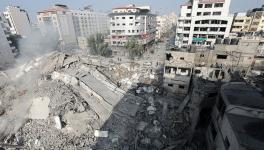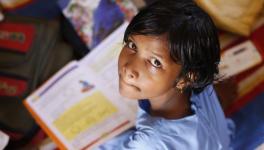The French Are Going, But War in Sahel Continues
On February 9, 2023, around 100 armed men drove to Dembo, Burkina Faso, on motorcycles and in pickup trucks. They opened fire on a militia group called Volunteers for the Defense of the Homeland (VDP), which works with the Burkinabé military to protect the areas of northwest Burkina Faso near its border with Mali. These men killed seven members of the VDP.
Three days later, on February 12, at the other end of Burkina Faso near the border with Ghana and Togo, armed men entered Yargatenga and killed 12 people, including two VDP fighters.
Meanwhile, in another incident that took place from February 9 night until the next day—further north of Burkina Faso near the border with Mali—men on motorcycles arrived at the Sanakadougou village and killed 12 people, burning homes, and looting “the few goods and livestock of the villagers,” reported a survivor to Agence France-Presse. These are not isolated incidents. They have become commonplace in Burkina Faso, where about 40% of the country is now largely controlled by a wide range of armed groups who began to target the Sahel after 2012.
Captain Ibrahim Traoré, who leads the Burkinabé government, came to power through a coup d’état in September 2022. He ousted Lieutenant Colonel Paul-Henri Sandaogo Damiba, who had himself come to power through a coup in January 2022. Neither of these coups was a surprise. Both followed after the two coups in neighbouring Mali (in 2020 and 2021), where the military took over out of frustration with the civilian government’s inability to quell the armed violence. Much of the same dynamics that propelled Mali’s interim President Colonel Assimi Goïta to power pushed Damiba and Traoré to their successive coups.
Pressure has been mounting on the military establishment in Mali and Burkina Faso, which are controlled by men in their late 30s and early 40s, to defeat the armed violence that has wracked their region for the past 10 years. Part of the motivation for these coups was the desire to remove the presence of the French military, which intervened in the Sahel region in 2013 to end the violence, but instead—it is widely believed—actively participated in inflaming the violence further. In May 2022, Mali’s Goïta told the French to leave the country, a move repeated by Traoré in January 2023.
Armed Men
When the Algerian civil war (1991-2002) ended, members of the Armed Islamic Group of Algeria (GIA) fled southward and set up bases in Mali, Niger, and southern Libya. Attempts to restart a war by GIA failed, since the Algerian population was exhausted after the decade-long civil war.
In 2007, some hardened former elements of the GIA formed Al Qaeda in the Islamic Maghreb (AQIM), which—as I experienced first-hand in the northern Sahel—became an integral part of the trans-Sahara smuggling networks. AQIM members began to work with a group called Movement for Unity and Jihad in West Africa (MOJWA), led by Hamada Ould Mohamed El Khairy.
Everything changed for these groups with the North Atlantic Treaty Organisation (NATO) war on Libya in 2011, which destroyed the Libyan state and provided Al Qaeda-aligned groups free rein in the region (many of them are now being armed by NATO’s Arab allies in the Gulf). By 2012, AQIM joined hands with many of the Arabs who had been brought to Libya during the war as well as with Tuareg groups from the northern Sahel who had been pursuing their own territorial aims against the government in Mali.
France, which had driven the NATO war against Libya, intervened militarily in Mali to block the rapid movement of these jihadist forces south toward Bamako, Mali’s capital. Operation Serval, the name of the first French mission, pushed these forces out of the major cities of central Mali. Then-French President François Hollande went to Bamako to celebrate these gains in 2013, but said, “the fight is not over.”
France established Operation Barkhane thereafter, which expanded through the Sahel region and operated alongside the massive US military presence in the region (which includes one of the world’s largest military bases in Agadez, Niger, not far from France’s garrison at the uranium mine in Arlit, Niger). The inability of France to halt the onrush of these armed groups into the heart of the Sahel has led—largely—to the anti-French sentiment in the region.
Rooted in the Countryside
In March 2017, many of these armed Islamic groups affiliated to Al Qaeda formed the Group for the Support of Islam and Muslims (JNIM), whose leader Iyad Ag Ghali participated in the Tuareg fight against the Malian state (in 1988, he founded the Popular Movement for the Liberation of Azawad). The JNIM rooted itself in the local struggles in the region, capitalising on the separatist sensibility of the Tuareg people and in the Fulani clashes with the Bambara people of the center of the country. A year after the founding of the JNIM, one of its emirs, Yahya Abu al-Hammam, released a video message that France’s retreat into the cities left the countryside in the hands of the JNIM and its allied forces, who will win “with patience.”
By rooting themselves in the smuggling networks and in the local conflicts over land and resources, the various armed groups affiliated to Al Qaeda made themselves a difficult target. The new governments in Mali and Burkina Faso accuse the French of both bringing these wars into their territory from Libya and exacerbating these conflicts by making deals with the armed groups to prevent attacks on French military bases.
Rather than break the insurgency, the French war in the region has resulted in the creation of the Islamic State Sahel Province in March 2022 with the group extending its operations in Burkina Faso’s Oudalan and Seno provinces, Mali’s Gao and Ménaka regions, and Niger’s Tahoua and Tillaberi regions. Now, France departs, leaving behind military governments ill-equipped to deal with what appears to be an unending war.
Russia
In December 2022, Burkina Faso’s Prime Minister Apollinaire Kyélem de Tambèla visited Moscow to apparently seek assistance from Russia in the war against the Al Qaeda insurgency. During his visit, he told RT that he visited the Soviet Union in 1988 and regretted that Russian-Burkinabé relations have weakened. It is likely that more Russian aid will enter these countries, provoking a reaction from the West, but this aid by the Kremlin is unlikely to help the Sahel in breaking away from the entrenched set of conflicts that trouble the region, set in motion under France’s colonial supervision.
Vijay Prashad is an Indian historian, editor, and journalist. He is a writing fellow and chief correspondent at Globetrotter. He is an editor of LeftWord Books and the director of Tricontinental: Institute for Social Research. He is a senior non-resident fellow at Chongyang Institute for Financial Studies, Renmin University of China.
This article was produced by Globetrotter.
Get the latest reports & analysis with people's perspective on Protests, movements & deep analytical videos, discussions of the current affairs in your Telegram app. Subscribe to NewsClick's Telegram channel & get Real-Time updates on stories, as they get published on our website.
























